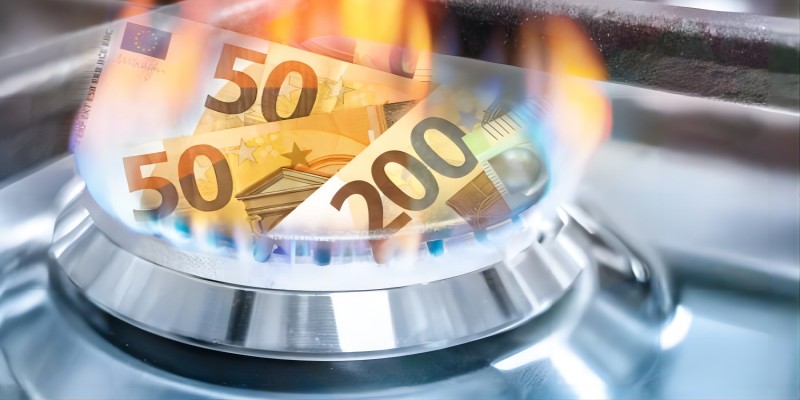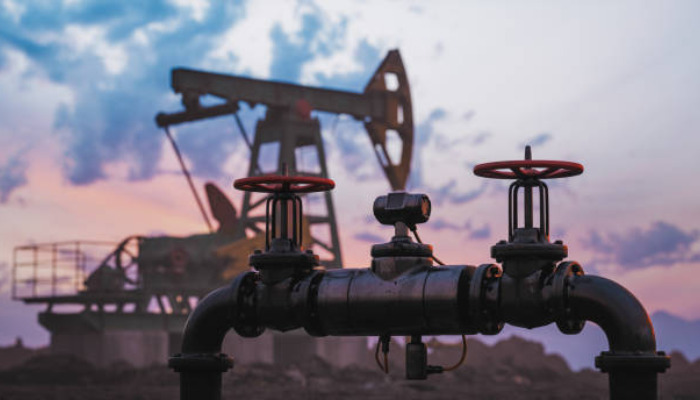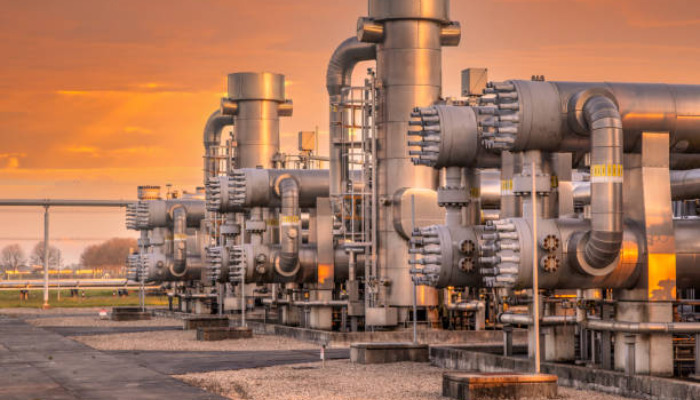Discovering Opportunities in Natural Gas Investments in 2024
Jan 27, 2024 By Triston Martin
The approach of financing in natural gas is an enlightened decision for investors passionate to find opportunities in the energetic energy economy of 2024. In terms of the global energy industry, natural gas is a decisive player and an imperative factor in achieving energy resources sustainable development while considering the environmental issues. This demands monitoring of market trends and risks by the investors. In this article, we will tell you the diverse ways to know how to invest in natural gas in 2024, providing an understanding of the most effective strategies to accomplish the optimum returns in this vigorous environment.

Why Invest in Natural Gas?
There are some reasons why investing in natural gas is an eye-catching suggestion. Natural gas is a multi-purpose and environmentally friendly fuel, thus standing as one of the drivers of the global green energy transition. With the focus on reducing carbon emissions by countries and industries, the demand for natural gas, an attractive Investment option, is expected to rise.
How to Invest in Natural Gas?
Here are some of the ways if you want to know how to invest in natural gas.
Stock Investments in Natural Gas Companies
Buying natural gas stocks in individual stocks permits investors to contribute to the expansion and profits of selected firms functioning in the natural gas industry.
Exchange-traded funds (ETFs)
Diversification and wider access to the natural gas industry can be accomplished by investors with Exchange-traded funds. Investors who use such funds usually have access to the entire industry, as the funds typically track a stock index related to natural gas. Hence, natural gas ETFs can have several that fall into the upstream exploration, midstream distribution, and downstream distribution, which lowers risk for the entire setting, away from individual stock selection.

Natural Gas Futures and Options
To advanced players confident in risk management, natural gas futures and option contracts trade in commodities exchanges can be undertaken. A futures contract enables traders to bet on the price of natural gas in the future market and get the profits from the price change. Nevertheless, it is significant to note that futures trading is hazardous, and only some investors can do future trading.
Master Limited Partnerships (MLPs)
MLP is a tax-advantaged investment structure merging features of limited partnerships with publicly traded securities. Many companies in the natural gas industry, especially those in transporting and storing natural gas, are MLPs.
Natural Gas Infrastructure Projects
Participating in joint ventures related to natural gas distribution can result in long-term and stable benefits. Businesses providing the infrastructure for transporting and storing natural gas are instrumental in the workings of the entire industry. The projects can be supported through stocks, bonds, or infrastructural funds.
Natural Gas Royalty Trusts
Those looking for income that is tied to natural gas production can take a look at royalty trusts. Such trusts have mineral rights to natural gas reserves and get a part of the proceeds from the sales of extracted gas. Although such investments provide regular cash flows, these assets may be temporary because they exhaust the underlying resources.

Direct Investment in Natural Gas Wells
Direct investment in natural gas wells is a viable alternative for accredited investors with plenty of money. This includes participating in funding and developing some gas wells for which one may receive a share of the profits. To employ this method, one must have in-depth knowledge of the oil and gas sector and risk-management skills for exploration and production.
Risks of Investing in Natural Gas
Natural gas investment comes with certain risks that must be understood in detail to make informed decisions. The first issue is the intrinsic inconstancy of natural gas prices driven by non-stationarities from supply and demand mechanisms, geopolitical events, weather variables, and economic information.
Different global economic factors, including downturns or geopolitical tensions, may alter industrial production and energy demand, leading to variations from the overall demand for natural gas, and can impact the overall financial results of the related investments.
Moreover, the gas industry is subject to frequent regulatory changes that include environmental policies, exploration regulation, and taxation, thereby manipulating the costs and profitability of companies in the industry. Continuous technological innovations and renewable energies create uncertainties that may change the competitive environment and lead to the long-term decline of natural gas demand. Environmental issues and government rules designed to curb greenhouse gas emissions threaten the industry's development and might make companies spend more money.
What affects natural gas prices?
The factors influencing natural gas prices include fundamental industry drivers, such as supply and demand and geopolitical events outside the industry, among other complexities.
The demand for natural gas for heating and cooling is known to be influenced by the changes in climatic conditions, especially in extremely high temperatures when the demand increases, resulting in high prices.
Storage levels are essential, such that low levels trigger concerns regarding the possibility of deficits while high levels support conclusions of oversupply. Geopolitical occurrences often result in uncertainty and volatility because of happenings like conflicts or disruptions of routes.
Economic data such as GDP growth and industrial production changes affect total energy demand and thus affect natural gas prices. In addition, currency exchange rates, technical development of recovery techniques, environmental restrictions, the dynamic of the LNG market, and the influence of natural disasters on infrastructure plot against a complex background that determines the price of natural gas.
Conclusion
The complex dynamics of the natural gas market, characterized by variables linked to supply and demand, geopolitical factors, technology, and regulatory changes, highlight the necessity of a sophisticated and strategic response.
Investors can customize their holdings according to their risk and investment needs to invest directly in exploration and production companies, infrastructure projects, or in diverse vehicles such as ETFs and mutual funds. Read this article carefully to learn about how to invest in natural gas.
-
 Investment Jan 27, 2024
Investment Jan 27, 2024Everything You Need to Know About Telecommunication Services Stocks!
Want to start investing in Telecommunication Services Stocks? Then read this article to explore them more and win the market!
-
 Mortgages Oct 10, 2023
Mortgages Oct 10, 2023Hire Purchase: An Overview
When you buy a vehicle via hire purchase, you make a down payment followed by regular payments over a certain amount of time to cover the remaining purchase price balance. Learn more about how to hire buy works so that you can choose whether or not it is the best kind of financing for you.
-
 Investment Feb 12, 2024
Investment Feb 12, 2024All About the Best Tech Stocks
Both seasoned investors and those just starting in the stock market can find much to like in the technology industry, which has consistently shown significant growth potential. Here, we'll delve into the fascinating world of tech stocks and pick out a few of the best possibilities for investors. We'll look at the factors that have helped firms of all sizes and ages, from the most well-known brands to the most promising startups, and tell you why you should consider making some of them part of your investing portfolio.
-
 FinTech Sep 12, 2024
FinTech Sep 12, 2024Wall Street's Growing Interest in Temu and Shein: What It Means for Global Tech Earnings
Explore how Temu and Shein's rising popularity is catching Wall Street's attention, shedding light on China's growing influence on global tech earnings in 2024
